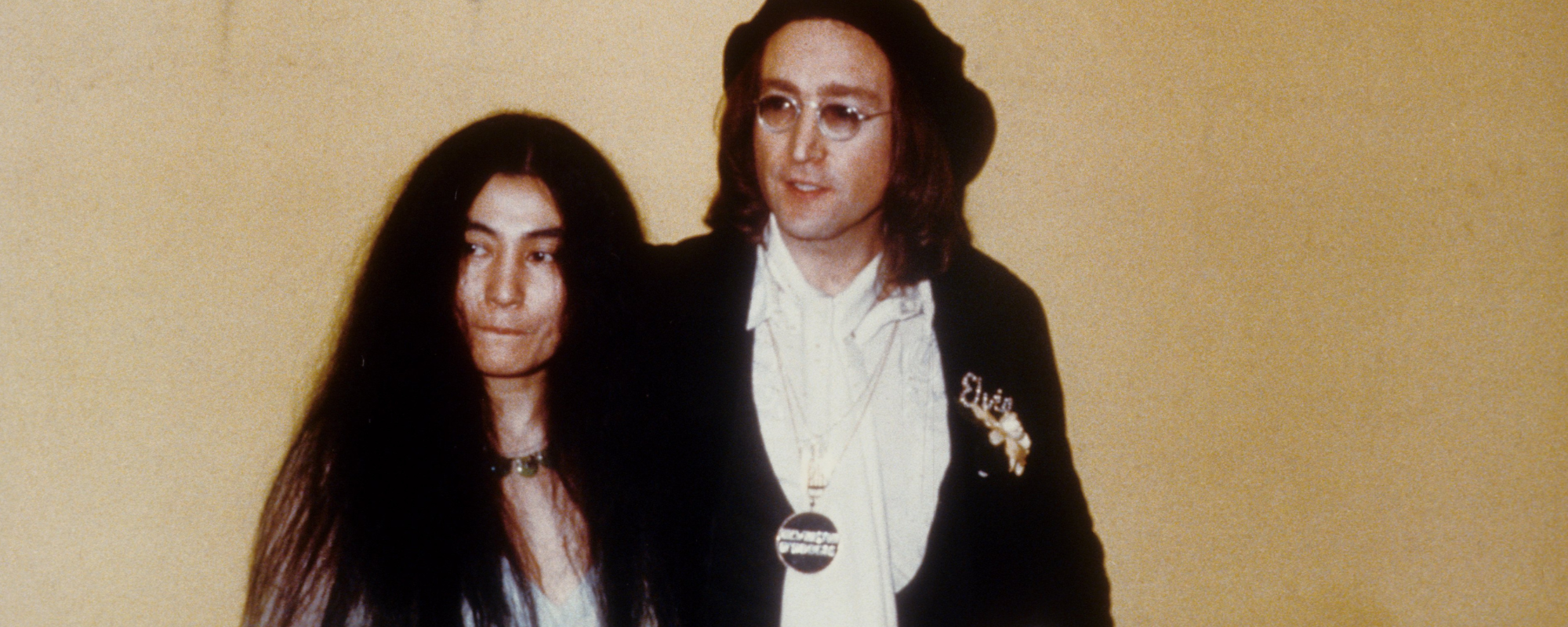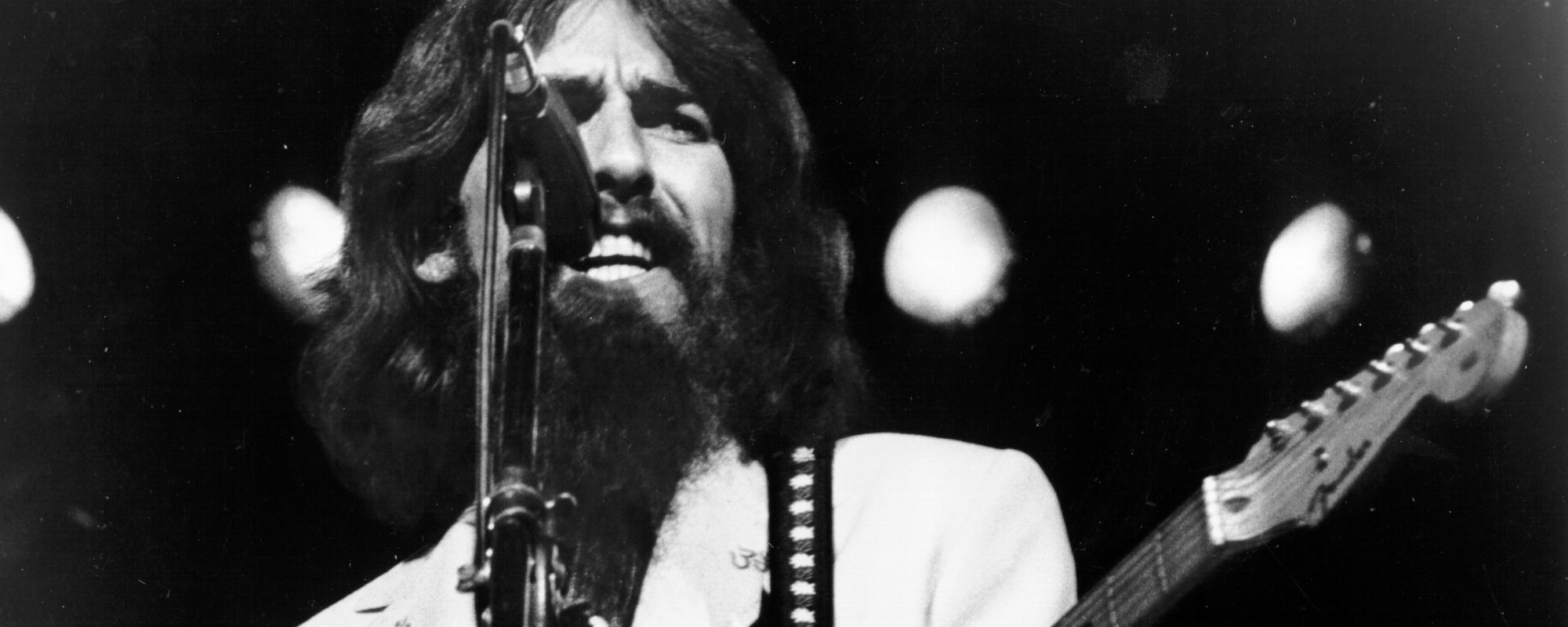The early 1980s were a divine time for fans of American and Canadian hard rock. It was no frills, had attitude, could be hooky without being poppy, and heavy without being metal. One of the most famous songs to emerge from this era was “Fantasy” by Canadian singer, guitarist, and songwriter Aldo Nova. It would be his big breakthrough.
Videos by American Songwriter
The young rocker seemingly came out of nowhere, but in truth he had been playing music since he was 13 years old, studying the music of Jimi Hendrix and spending three years portraying George Harrison in a Beatles cover band. A failed collaboration with a local musician bore unexpected fruit—the studio owners helped Nova land a publishing deal with ATV Music Productions.
That deal led to the highly proficient, tech-savvy musician recording late-night demos at Bobinason Studios in Montreal. He played all the guitars and synths and some bass on the album and enlisted other musicians as well: Dennis Chartrand (piano), Michel Pelo and Roberto Biagioni (bass), Michael LaChapelle and Terry Martell (drums), and Daniel Barbe and Dwight Druck (backing vocals). However, all except four of the songs featured Nova playing everything but drums. “Fantasy” is mostly him.
The solid, well-played demos so impressed Portrait Records that they offered Nova a three-album deal. He then went into Power Station studios to have the demos mixed to achieve a bigger sound courtesy of Tony Bongiovi and Ray Willard. Yes, that first mixer not only co-owned Power Station but was indeed Jon Bon Jovi’s second cousin. More on that in a moment.
Foreshadowing the Pop-Metal Movement
Released in early 1982, Aldo Nova’s eponymous debut presaged the pop-metal movement to come. The lead single “Fantasy” rocked hard, combining insistent keyboard chords with chunky guitars and an irresistible hook. Other high-energy tracks included “Hot Love,” “Under the Gun,” and “Heart to Heart.” Then there were the ballads “Ball and Chain” and “Can’t Stop Lovin’ You,” plus the unexpectedly swinging pop-rock closer “See the Light” with its crisp, raucous guitar solo. Nova had a great tone.
“Fantasy” was the single that drew everyone’s attention. Beyond its infectious nature, the tongue-in-cheek video featured Nova landing in a helicopter under armed guard near a warehouse at night. The leopard catsuit-clad musician fired a laser from his guitar to break in, jump on stage, and rock an eagerly waiting crowd of fans. The single received solid MTV airplay and radio play, reaching No. 3 on Billboard’s Mainstream Rock radio chart and No. 23 on the Hot 100 singles chart. The album shot to No. 8 on the Top 200 albums chart and was certified Gold in May 1982, Platinum in 1989, and Double Platinum by 1994.
The chorus concept of “Fantasy”—Life is just a fantasy/can you live this fantasy life?—clicked with many listeners. Nova painted a picture of illicit drugs and procured sex as just an ill-gained illusion, a distraction from the realities of everyday living. In another way, it could be seen as a critique of the rock star life—Can’t you see what this crazy life is doin’ to me?
In the years to come, glam bands, intentionally or not, would follow the template set by the album—hard rock anthems contrasted with poppy ballads. But whereas Nova was more thoughtful about some of his subjects, many pop-metal acolytes would use power ballads to balance out their debaucherous exploits. Faked sensitivity, in many cases. The Canadian rocker was also very keen on projecting a larger-than-life rock star image, something not lost on a young Jon Bon Jovi.
Bonding with Bon Jovi
As mentioned before, Bon Jovi’s second cousin Tony Bongiovi ran Power Station and was helping the aspiring musician learn about the industry. When Bon Jovi met Aldo Nova in 1981, he had been working there for over a year as a janitor and gopher, reportedly crashing on a sleeping bag in his second cousin’s apartment upstairs, and learning up about being a studio assistant. They formed a bond.
In 1982, when Bon Jovi recorded a demo for “Runaway,” he enlisted Nova on guitar along with Rick Springfield/John Waite guitarist Tim Pierce, Bruce Springsteen keyboardist Roy Bittan, future Bon Jovi bassist Hugh McDonald, and Scandal drummer Frankie LaRocka. In a funny echo of Nova’s own career, the “Runaway” demo was included on Bon Jovi’s eponymous 1984 debut, the only song not to feature the band—except for Jon. It’s the demo that helped land him a major label deal.
Jon and Aldo maintained their friendship over the years, and when the Canadian musician made his comeback album Blood on the Bricks in 1991, Bon Jovi co-wrote and co-produced it and released it on his Jambco Records label.
The debut Aldo Nova broke the titular rocker into the mainstream, and he followed it up with two more albums, Subject…Aldo Nova (1983; certified Gold in 1994) and Twitch (1985), his final album for Portrait. That latter record had many big, anthemic numbers, particularly “Lay Your Love on Me” with its use of talk box that may have influenced guitarist Richie Sambora when Bon Jovi recorded Slippery When Wet the following year. In fact, some of Twitch feels like it could have been a sonic gateway for the enhanced Bon Jovi sound, while the staccato keyboards of “Fantasy” might have influenced “Runaway.”
Prolific Producer
Although Aldo Nova’s time in the rock star spotlight was bright but brief, he went on to do much more in the industry. His pop side would prove to be a great asset as he journeyed into producing, and he wrote or co-wrote songs for Faith Hill (“I Love You”), Clay Aiken (“This Is the Night”), and Celine Dion (including the global hit “A New Day Has Come”). He has released three other albums: Nova’s Dream (1997), The Life and Times of Eddie Gage (a preview of his forthcoming musical), and Reloaded (rerecordings of many of his ‘80s songs including “Fantasy”), along with the 2022 EPs Short Stories and Sonic Hallucinations.
Aldo Nova is also a Grammy winner for Album of the Year, co-producing Celine Dion’s 1996 album Falling into You. Further, he co-wrote four songs on the 2000 album Uno by La Ley, which won the Grammy for Best Latin Rock/Alternative Performance.
Many people still fondly remember Aldo Nova’s “Fantasy”—it currently has 22 million views on YouTube and 19 million plays on Spotify. The video and song perfectly captured a moment in time when ‘70s rock was transitioning into the ‘80s, when things were still a little raw but moving in a slicker direction. “Fantasy” still retains tremendous staying power today, and for good reason.
When you purchase through links on our site, we may earn an affiliate commission.
Photo by Ron Palmer/SOPA Images/Shutterstock












Leave a Reply
Only members can comment. Become a member. Already a member? Log in.